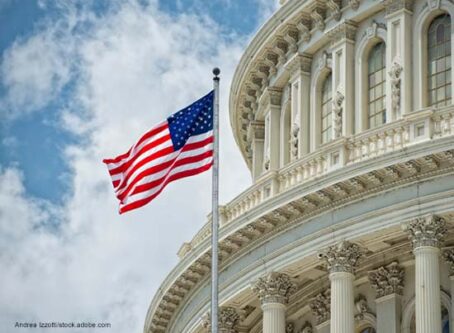Towing reforms take effect July 1 in four states
New rules to address unfair towing practices are set to take effect next week in multiple states. Meanwhile, North Carolina legislators still are working to address the issue.
Rule changes are touted to establish basic consumer protections from predatory towing for truck drivers and motor carriers.
OOIDA has worked for years with states to establish regulations to protect truck drivers involved in a nonconsensual tow.
Florida
Florida was the first state this year to act on the issue. On July 1, a new law takes effect that addresses concerns about predatory towing practices.
The new rule permits towing operators to claim a lien on motor vehicles for specified fees. Statute provides a process for foreclosing on such lien if fees remain unpaid.
A new requirement is added for counties to establish maximum rates that towers may charge for cleanup and disposal of hazardous and nonhazardous materials incidental to a nonconsensual tow. Cities also are permitted to enact such rates.
In areas without established maximum rates, rates set by the Florida Highway Patrol are recognized.
A rate sheet must be made available at the scene of a tow to the owner or operator, if present.
Counties, cities and the Florida Highway Patrol also are mandated to establish a process for investigating and resolving complaints regarding fees charged in excess of such rates.
Another addition to Florida law mandates that a towing operator must allow inspection and release of the vehicle within one hour after the owner, lienholder, insurance company representative or agent provides specified documents during normal business hours at the site where the vehicle is stored.
Mississippi
A new law taking effect in Mississippi also address concerns about nonconsensual towing and charges for commercial vehicles.
The new rule calls for the establishment of a commercial vehicle towing advisory committee within the Commercial Transportation Division of the Mississippi Department of Public Safety.
The panel is responsible for establishing regulations for towing and recovery service providers. Statewide maximum towing and storage rates for nonconsensual tows also will be set.
Additionally, per-pound billing for nonconsensual towing is outlawed.
A resolution process also will be created for truck owners who dispute the amount of towing and recovery fees and charges. Disciplinary action against towing and recovery service providers will be established.
Another provision in the new law forbids law enforcement officers to receive compensation or any other incentive to select a particular towing and recovery service from a tow list.
The Mississippi Trucking Association welcomes the rule changes.
MTA President Hal Miller has referred to predatory towing as “an egregious practice that not only disrupts our state’s supply chain but also costs Mississippi truck owners thousands of dollars for each unwanted tow.”
Tennessee
In neighboring Tennessee, another new law is touted to include comprehensive reforms to protect truck drivers and motorists from predatory towing practices.
The new law limits booting to commercial lots. In such instances, a licensed parking attendant must be present and available to remove the boot within 45 minutes from “point of contact.”
The fee to remove a boot is capped at $75.
Additionally, if a tow is in process but the vehicle has not yet left the parking area, the towing company is required to release the vehicle to the owner for a fee not to exceed $100.
Another provision in the new law makes it illegal to boot or use a device to immobilize any truck and trailer that is clearly identified as a commercial vehicle with a USDOT number or with a commercial license plate.
The Tennessee Trucking Association said the new rule is intended to protect truck drivers from unlicensed individuals booting vehicles anywhere in the state.
Virginia
As of July 1, two new Virginia laws are intended to protect the public from predatory towing. Specifically, the changes prohibit solicitation of towing.
The first new law prohibits tow truck drivers and towing and recovery operators from solicitation or offering tow services in any manner, directly or indirectly, at the scene of any wrecked or disabled vehicle on a highway.
Violators would face up to $500 fines. Repeat offenders would face up to six months behind bars and/or a fine up to $1,000.
The second new law on the topic prohibits tow truck drivers from driving by the scene of a wrecked or disabled vehicle and initiating contact with the owner or operator of such vehicle by soliciting or offering towing services, and towing such vehicle, if the affected vehicle has a law-enforcement initiated tow.
North Carolina
Across the state line in North Carolina, work continues on multiple bills that cover predatory towing.
State law does not regulate nonconsensual towing or booting practices. Cities and towns also are permitted to set their own towing rules.
Some state elected officials say the current system does not work. State Attorney General Josh Stein has called for the Legislature to address concerns about predatory towing.
According to local media, the office has received more than 600 towing complaints over five years.
The first bill, H1024, would establish a requirement for towing and booting companies to acquire a permit to do business. Companies would be responsible for getting annual renewals to stay in business.
A system also would be created for consumers to file complaints against towing and booting companies through a Towing and Recovery Commission. The commission would set maximum fees for towing and booting.
Additionally, towed vehicles could only be towed up to 25 miles away.
It’s time to crack down on predatory fees and practices in the towing industry that hurt working people. This session, I introduced a bipartisan bill to do just that. #ncpol https://t.co/aJGafvjq6P
— Rep. Tim Longest (@timlongest) June 12, 2024
The second bill, H1037, would prohibit towing a vehicle to a location that does not offer vehicle recovery within 24 hours. A towing company would be required to accept credit cards, debit cards and cash.
In addition, the bill would delay when companies can start charging storage fees.
The attorney general would be given the power to take “other appropriate enforcement action.”
Both bills include a provision to limit how much towing companies can charge for use of a credit card to pay a tow bill. Local media has reported charges for credit card use can reach $100.
The legislation also would establish “regular business hours.” The rule would dictate how storage days add up. LL









